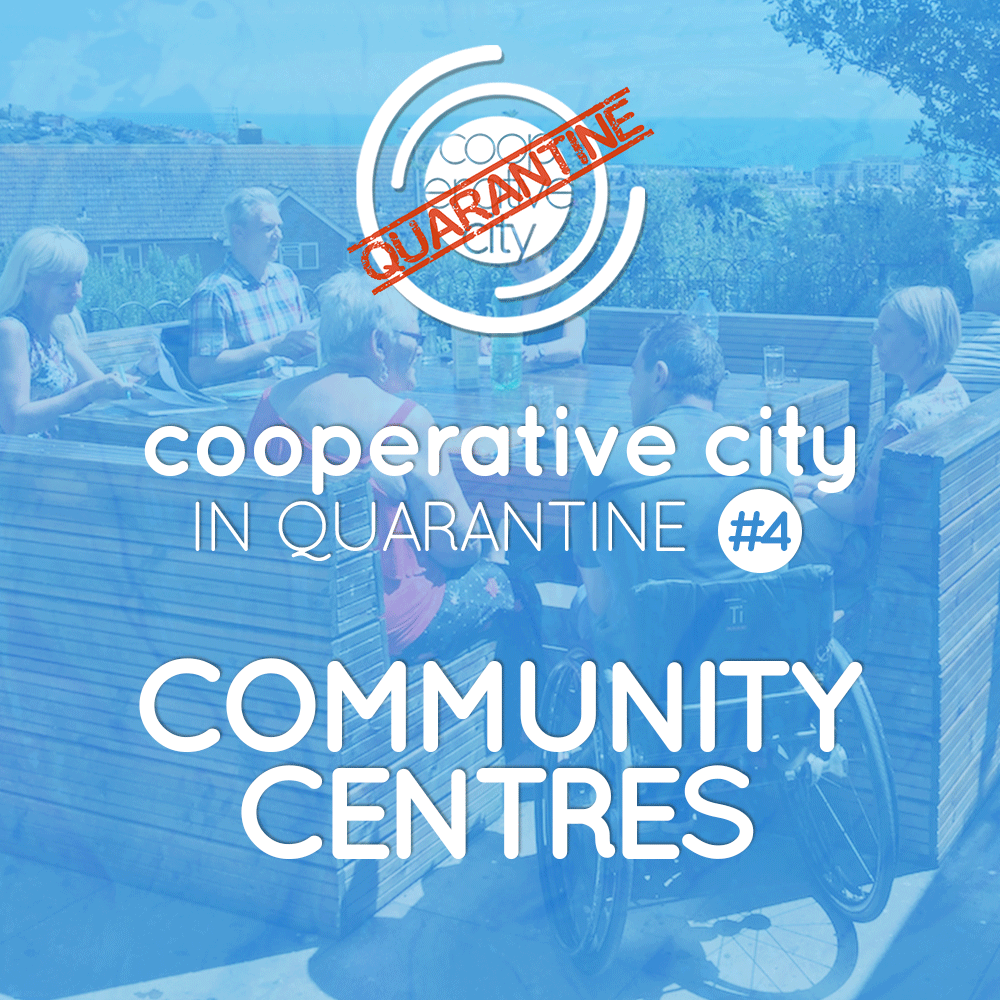Probably all community centres in Europe have a lot in common regarding the way they work during this challenging and totally new situation. Community venues, normally serving as spaces for encounters and exchange between individuals and organisations, now cannot accommodate any activities and had to close their doors. Nevertheless, communities organised around these venues need social and cultural services now more than ever.
What can community centres and NGOs do to continue offering their services in order to help those who benefit from them, especially during this challenging time?
On 8th April 2020, Levente Polyák (Budapest), urban planner, researcher and policy adviser at Eutropian moderated Cooperative City in Quarantine #4, a live panel on how community centres and NGOs are changing their working methods under this crisis, featuring guests from this sector scattered across Europe.
Representatives and activists from five cities that are participating in the URBACT Network ACTive NGOs.
Irina Vasilijeva (Riga) – Active NGOs project coordinator
Petra Marcinko (Dubrovnik) – Lazareti Art Workshop, local stakeholder group coordinator
Tom Goodridge (Brighton) – Community engagement officer in Brighton & Hove City Council
Jackie Rena (Brighton) BELTA, Bristol Estate Leaseholders And Tenants Association
Marc Bassols (Santa Pola) – Local stakeholder group coordinator
Maria Tiilikkala (Espoo) – NGO cooperation coordinator, Espoo Municipality
How is the local situation in your country and city?
Irina Vasilijeva– I work for the Riga Municipality. In Latvia, the state of emergency has been prolonged until the 12th of May. However, half of the time I still work in the office. At the moment Latvia doesn’t count many cases – as of April 8th it’s 577, and as physical contact is not very rooted in our culture we are pretty good at keeping distance and at avoiding crowds.
Petra Marcinko – I work for Art Workshop Lazareti in Dubrovnik. In Dubrovnik there are only about 60 cases, and Croatians in general are abiding by the rules. Many citizens joined the civil protection crew, patrolling the city making sure that people are alright and don’t act irresponsibly.
Tom Goodridge – I am a Community Engagement Officer in the Brighton & Hove City Council. I work from home, and I am also self-isolating. I contracted the virus myself, but luckily it was mild. In the UK there are approximately 60.000 cases and thousands of deaths. It is noted that the UK’s response was slow. However, we’ve been overwhelmed by acts of kindness coming from grassroots organizations and single citizens.
Jackie Rana – I’m one of the acting trustees of BELTA (Bristol Estate Leaseholders And Tenants Association). Many members of our community found were given relatively little warning about restrictions. So I’ve been making sure we would show a reactive approach to do what’s possible in order to serve the most vulnerable layers of society.
Marc Bassols – In Santa Pola, the municipality where I work, at the moment we don’t have precise data at local level. The situation in Spain is frightening, amounting to over 140.000 cases and most people from this sector are working from home.
Maria Tiilikkala – I am currently in Helsinki and haven’t been in Espoo for over two weeks now. Most of us from the Espoo municipality and from NGOs in Espoo are working from home. There are strict prevention measures in Finland at the moment, and people are not allowed to leave the region they find themselves in. Most cases are in the capital area. There are about 2500 cases in the country, 10% of which are in Espoo. Luckily, most cases are mild and our health system is coping well with the situation. The country is planning on ceasing the lockdown in mid-May. We are experiencing a very positive response in terms of solidarity and social relations. Finns are not famous for socializing with neighbours, but now things are changing – people understood that they are all in this together, and they are doing their best to support each other.
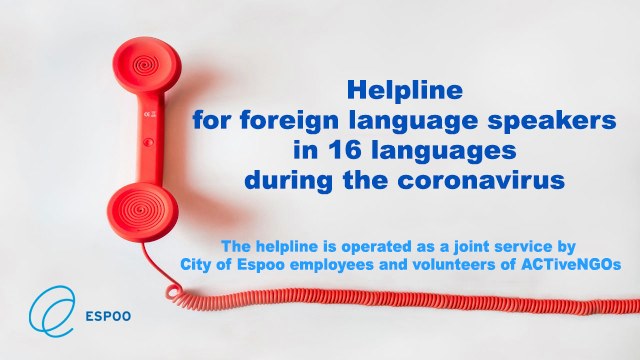
Levente Polyák – In Budapest the situation is relatively calm, restrictions are currently not very strict, even though tougher measures are expected. Most Coronavirus cases are concentrated in the capital region, and an unpleasant consequence of the situation is that the government declared the state of emergency, overwriting local ordinances and thus limiting powers at city council level, so that many municipalities find themselves depending on centralized decisions instead of having direct access to local resources.
Can you tell about the community venue and organisations you work with and how did you adapt to the lockdown situation?
Irina Vasilijeva – The Riga NGO house is a municipality-led structure acting as a cultural centre and home to several NGOs. When the lockdown was declared, no one knew what to do. We organized a meeting with the NGOs, and just a couple days later we managed to activate webinars on how to shift to online activity, while still offering consultancy regarding bureaucratic procedures for NGOs, as each year they have to file a tax report during the month of April. Participation was very active, and we will have to repeat these webinars as we couldn’t reach all NGOs. This created additional work, and people are lost and tired. So we also started to act on the psychological wellbeing of people working in this field. We hope that by mid-May the situation will allow us to slowly go back to our usual activities, even if we already realized that this year we will have a very unusual summer and a very tiring autumn, due to all the activities that have been postponed.
Petra – The Lazareti complex and the Youth Centre are both empty now, but what we generally do is making connections for the local community. Each organisation working here started to work in order to provide relief to the community: we 3D-printed protective shields and masks, youth workers and psychologists launched online services, educational courses have also been activated. The economy of Dubrovnik is very unstable now because of the lack of tourism, so next year will be very hard for these centres to work. On the other hand, we are doing our best to show that these NGOs play a very important role in community building and well-being, so that our activities receive adequate funding.
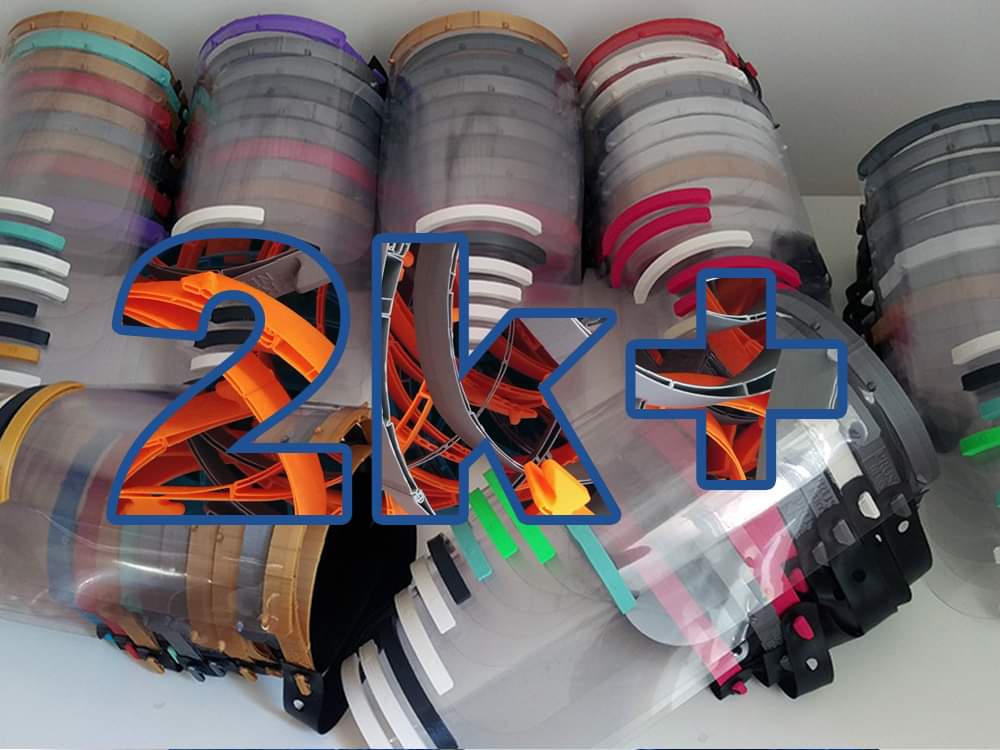
Marc Bassols – In Santa Pola, the city council has published a list of useful numbers, describing what associations and what NGOs offer to the citizens, while organizing online cultural programs to make people feel less alone and less stressed.
Talking about digitalisation, was the transition easy for you and your local communities?
Irina Vasilijeva – It definitely wasn’t a smooth shift, but things are starting to work now. The biggest issue is not digitalisation itself, it’s rather about the mindset. Both at NGO and Municipality level, we need to figure out what activities can remain online after the lockdown.
Petra Marcinko – I would say that the shift from physical to virtual is working well and relatively fast. We also collected contributions about the memories and daily habits of our community, and we organized an online exhibition which we hope will be useful for the psychological well-being of the citizenry, so that they feel less alone and part of an active and supportive community.
Jackie – In terms of access to online resources, a big issue is that there are people who don’t have easy or continuous access to online services. We distributed flyers, informing that our centre was there to support everybody. It’s actually been a huge learning process for everybody.
Marc Bassols – The main community centres of Santa Pola are struggling to shift to online services, as NGOs are all small and many people who work there are not well accustomed to working online and thus they don’t know how to provide their services successfully. Our youth centre has been able to connect more, as their media literacy is more advanced. Of course, this shows how we need to invest more on media literacy for everyone.
During the economic crisis of the last decade, many civil actors and NGOs managed to foster their own local welfare network. A few years later, once the economy started to heal many of these NGOs and their work have been forgotten. This time again, civil society actors were often faster than governments and municipalities to provide new services and protect the most vulnerable members of their communities. How to make sure this time the importance of civil society will be remembered also when the economy is back?
Petra Marcinko – We realized that we need to better communicate with the government, informing them about local needs and issues. We need to educate the government about the importance of our work, tackling cuts to funding. A lot of people remember the war, so they know the importance of services like ours, as in times of emergency the state didn’t have the means and the time to follow local communities and especially disadvantaged groups.
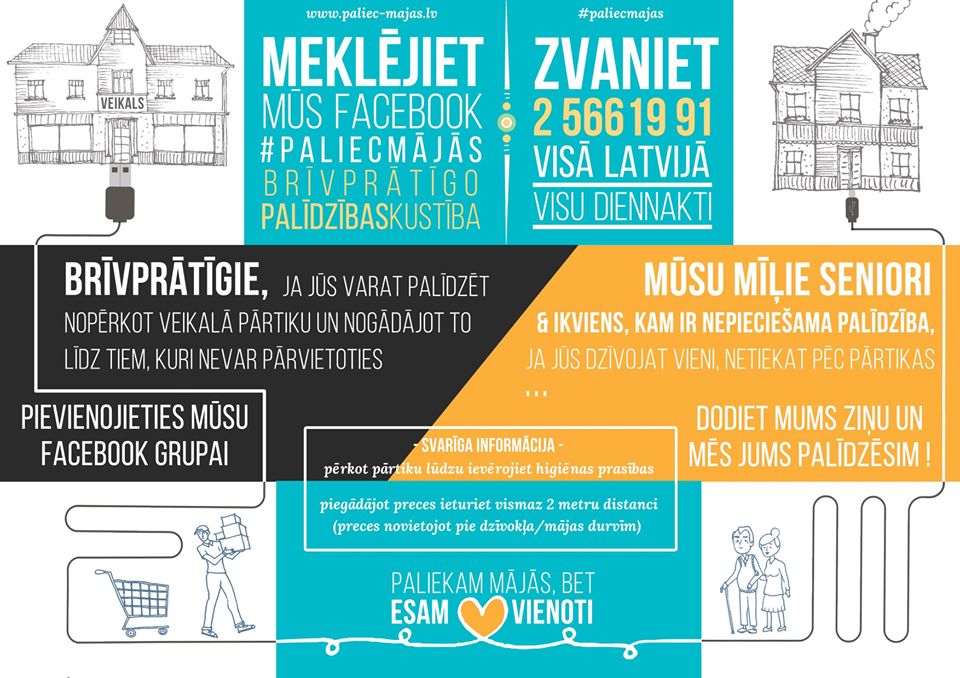
Jackie – We have a good connection with the Council, and key players who could quickly intervene, so it’s been easier than we thought. The Bristol estate in Brighton is a multi-purpose space, offering courses, services to the community and also housing artists. I am an artist myself, so I am crossing over different areas of activity. Everything happened suddenly, so we had to adapt very quickly, but we managed to face the challenge. Now we’ve been primarily using the space as a food distribution centre, and we are very glad we managed to mobilise lots of volunteers from all around the city, so that we can help the citizenry at our best.
Tom Goodridge – There are about twelve community assets in the East Brighton area. BELTA has been quicker than the other NGO houses in the area, as trust issues and difficult collaboration between many of the other different groups definitely didn’t help. On top of that, as Jackie said, access to digital is not equal for everyone, so their usual services reached less people than usual. At Municipality level, we are just overwhelmed with a heavy workload. Bureaucracy has a great impact on this, as day after day we receive new provisions and sometimes conflicting statements, so BELTA had much more freedom of movement and ability to act quickly on the local level. I hope this will be the proof of the fact that municipalities need to listen and support more the services that are offered by community centres, acknowledging that they know better what the local needs are. We are also experiencing something new: during the past few weeks we are getting to know a new generation of younger, active citizens we didn’t often see.
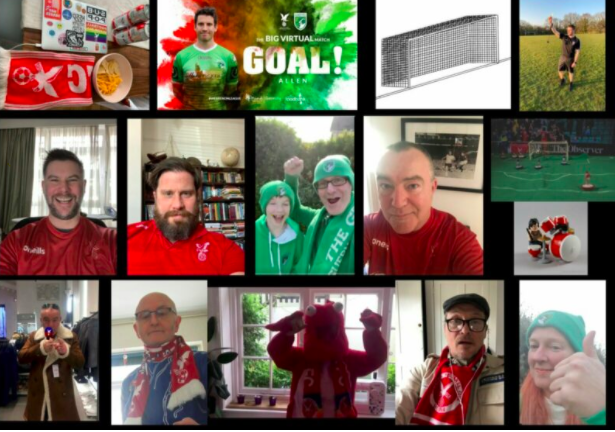
There are ways to use the physical spaces to host “emergency services” such as food distribution, 3D printing lab for masks and other useful safety tools, these spaces can act as the physical venue for online exhibitions, and those spaces that have an outdoor area can potentially grant individuals some (alone) time in the open upon request. How can community venues, NGO networks and municipalities help the coordination of emerging volunteering efforts?
Maria Tiilikkala – Working at municipality level in Espoo, I work very closely with NGOs, so I get to see both sides. We have many different NGO houses. Our coordination group is very active, and I am personally very satisfied to see that people were very proactive, proving to adapt very quickly to the shift. Food distribution has been a priority in order to serve the elderly and other people living in isolation. Volunteers are doing most of the work: Espoo is a big city in Finland, and due to bureaucracy the municipality has been obviously slower. We need to learn how to work faster in order to solve immediate problems. One of them is communication: there are many foreigners in Espoo, and we are doing our best to avoid what happened in many foreign communities in Sweden, where unfortunately there have been cases of death partly related to the lack of fast and proper information addressed to people who don’t speak the language. We have been building an online helpdesk that started operating on April 7th. 25 people are chatting and answering the phone in 15 languages. It was clear for everyone that we would be doing this together. A very positive sign and an interesting side of the crisis.
Irina Vasiljeva – In Latvia one important program is related to food delivery. We are recruiting volunteers, but of course we need to have each of them trained and checked before they can start helping others, so it takes some time. Of course, we are doing a lot to spread the word and make sure there are volunteers all across the country. People are responding, so I think we are doing a good job.
Tom Goodridge – Our library team is offering story-time online for children, live or recorded. We are also planning an online Easter egg hunt, and we also started to launch new weekly habits that help bringing people together – from a distance, obviously. For example, every Thursday night at 8pm we applaud health workers. I hope these can make people more aware of how important community building is.
Petra Marcinko – We are seeing an increasing level of awareness regarding the situation, so younger activists and volunteers are getting closer to older generations, listening more to their needs and doing their best to look after them. I actually think this played a crucial role in keeping the number of infections so low in the city.
Levente Polyák – I’m part of a foundation called Hungarian Contemporary Architecture Centre that organises cultural events in the courtyards of historical buildings. It usually takes place every year at the beginning of May, and of course we will not be able to do it this year, so we thought about how we could move this online, trying to foster communication and cooperation between people in the hopes that this will also teach them more about active and collaborative citizenship.
Watch the full episode!

